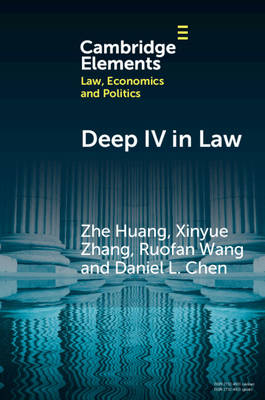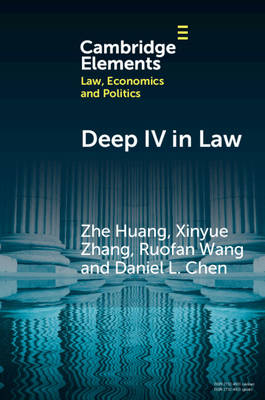
- Afhalen na 1 uur in een winkel met voorraad
- Gratis thuislevering in België vanaf € 30
- Ruim aanbod met 7 miljoen producten
- Afhalen na 1 uur in een winkel met voorraad
- Gratis thuislevering in België vanaf € 30
- Ruim aanbod met 7 miljoen producten
Zoeken
Deep IV in Law
Appellate Decisions and Texts Impact Sentencing in Trial Courts
Zhe Huang, Xinyue Zhang, Ruofan Wang
€ 33,45
+ 66 punten
Omschrijving
Do US Circuit Courts' decisions on criminal appeals influence sentence lengths imposed by US District Courts? This Element explores the use of high-dimensional instrumental variables to estimate this causal relationship. Using judge characteristics as instruments, this Element implements two-stage models on court sentencing data for the years 1991 through 2013. This Element finds that Democratic, Jewish judges tend to favor criminal defendants, while Catholic judges tend to rule against them. This Element also finds from experiments that prosecutors backlash to Circuit Court rulings while District Court judges comply. Methodologically, this Element demonstrates the applicability of deep instrumental variables to legal data.
Specificaties
Betrokkenen
- Auteur(s):
- Uitgeverij:
Inhoud
- Aantal bladzijden:
- 52
- Taal:
- Engels
- Reeks:
Eigenschappen
- Productcode (EAN):
- 9781009296373
- Verschijningsdatum:
- 25/08/2022
- Uitvoering:
- Paperback
- Formaat:
- Trade paperback (VS)
- Afmetingen:
- 152 mm x 229 mm
- Gewicht:
- 81 g

Alleen bij Standaard Boekhandel
+ 66 punten op je klantenkaart van Standaard Boekhandel
Beoordelingen
We publiceren alleen reviews die voldoen aan de voorwaarden voor reviews. Bekijk onze voorwaarden voor reviews.








